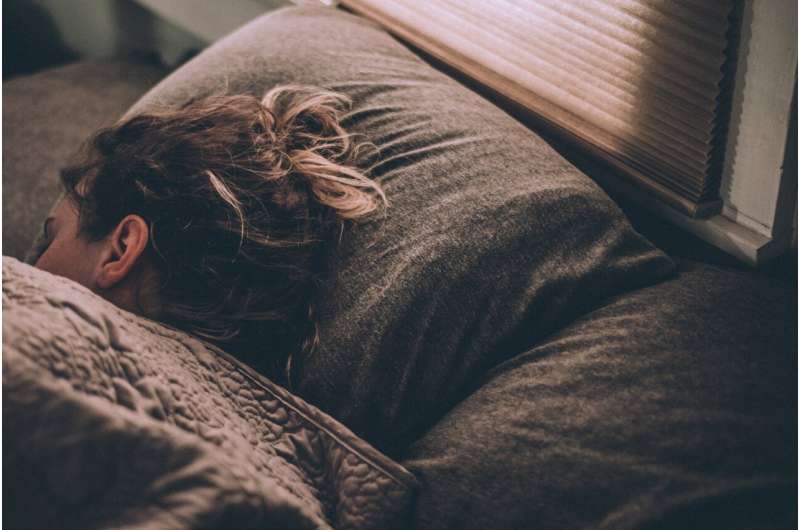Whether we’re night owls or morning larks, our body clocks are set by the sun. Theoretically, changing day length and light exposure over the course of the year could affect the duration and quality of our sleep. But figuring out how this applies in practice is difficult. Although studies where people assess their own sleep have suggested an increase in sleep duration during winter, objective measures are needed to determine how exactly the seasons affect sleep.
Scientists studying sleep difficulties have now published data in Frontiers in Neuroscience showing that even in an urban population experiencing disrupted sleep, humans experience longer REM sleep in winter than summer and less deep sleep in autumn.
“Possibly one of the most precious achievements in human evolution is an almost invisibility of seasonality on the behavioral level,” said Dr. Dieter Kunz, corresponding author of the study, based at the Clinic of Sleep & Chronomedicine at the St Hedwig Hospital, Berlin. “In our study we show that human sleep architecture varies substantially across seasons in an adult population living in an urban environment.”
Studying sleep
A team of scientists led by Aileen Seidler in Dr. Kunz’s working group at the Charité Medical University of Berlin recruited 292 patients that had undergone sleep studies called polysomnographies at the St. Hedwig Hospital. These studies are regularly carried out on patients who experience sleep-related difficulties, using a special laboratory where patients are asked to sleep naturally without an alarm clock, and the quality and type of sleep can be monitored as well as the length of sleep. Although the sleep disorders could potentially affect the results, this makes for a large study group evenly spread throughout the year, allowing for the investigation of month-to-month differences.
The team excluded patients who were taking medications known to affect sleep, technical failures during the polysomnography, and REM sleep latency longer than 120 minutes, which suggested that the first REM sleep episode had been skipped. Once these exclusions had been made, 188 patients remained. Most of their diagnoses showed no seasonal pattern, but insomnia was more commonly diagnosed towards the end of the year.
Winter sees more REM sleep
Even though the patients were based in an urban environment with low natural light exposure and high light pollution, which should affect any seasonality regulated by light, the scientists found subtle but striking changes across the seasons. Although total sleep time appeared to be about an hour longer in the winter than the summer, this result was not statistically significant. However, REM sleep was 30 minutes longer in the winter than in summer. REM sleep is known to be directly linked to the circadian clock, which is affected by changing light. Although the team acknowledged that these results would need to be validated in a population which experiences no sleep difficulties, the seasonal changes may be even greater in a healthy population.
“This study needs to be replicated in a large cohort of healthy subjects,” cautioned Kunz.
Although most people’s waking time is currently largely out of their control, due to school or work schedules, society might benefit from accommodations that would allow humans to respond more effectively to the changing seasons. In the meantime, going to sleep earlier in the winter might help accommodate human seasonality.
“Seasonality is ubiquitous in any living being on this planet,” said Kunz. “Even though we still perform unchanged, over the winter human physiology is down-regulated, with a sensation of ‘running-on-empty’ in February or March. In general, societies need to adjust sleep habits including length and timing to season, or adjust school and working schedules to seasonal sleep needs.”
More information:
Seasonality of Human Sleep: Polysomnographic Data of a Neuropsychiatric Sleep Clinic, Frontiers in Neuroscience (2023). DOI: 10.3389/fnins.2023.1105233
Citation:
Humans don’t hibernate, but we still need more winter sleep (2023, February 17)
retrieved 17 February 2023
from https://medicalxpress.com/news/2023-02-humans-dont-hibernate-winter.html
This document is subject to copyright. Apart from any fair dealing for the purpose of private study or research, no
part may be reproduced without the written permission. The content is provided for information purposes only.


